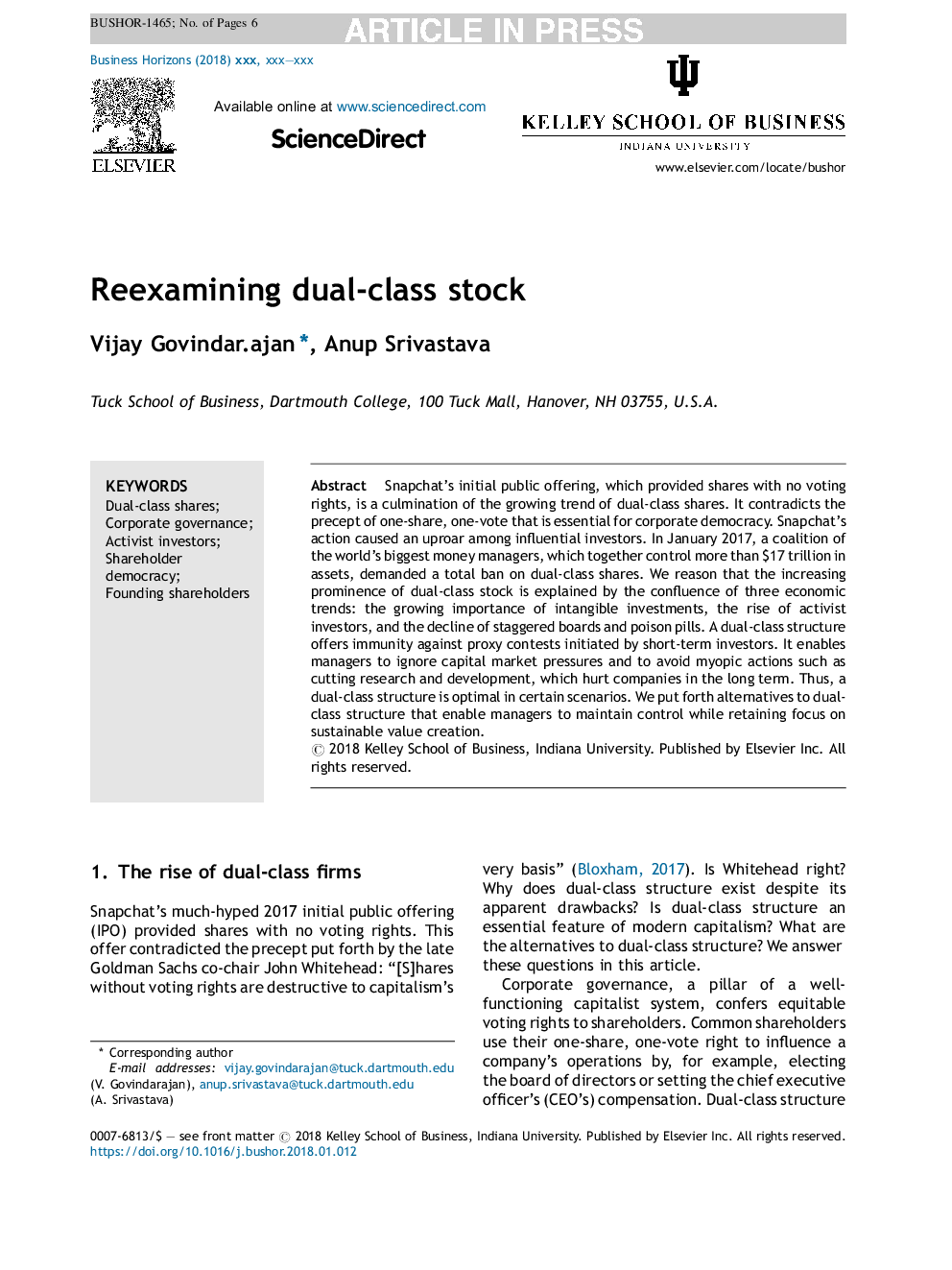| Article ID | Journal | Published Year | Pages | File Type |
|---|---|---|---|---|
| 7423120 | Business Horizons | 2018 | 6 Pages |
Abstract
Snapchat's initial public offering, which provided shares with no voting rights, is a culmination of the growing trend of dual-class shares. It contradicts the precept of one-share, one-vote that is essential for corporate democracy. Snapchat's action caused an uproar among influential investors. In January 2017, a coalition of the world's biggest money managers, which together control more than $17 trillion in assets, demanded a total ban on dual-class shares. We reason that the increasing prominence of dual-class stock is explained by the confluence of three economic trends: the growing importance of intangible investments, the rise of activist investors, and the decline of staggered boards and poison pills. A dual-class structure offers immunity against proxy contests initiated by short-term investors. It enables managers to ignore capital market pressures and to avoid myopic actions such as cutting research and development, which hurt companies in the long term. Thus, a dual-class structure is optimal in certain scenarios. We put forth alternatives to dual-class structure that enable managers to maintain control while retaining focus on sustainable value creation.
Related Topics
Social Sciences and Humanities
Business, Management and Accounting
Business and International Management
Authors
Vijay Govindarajan, Anup Srivastava,
